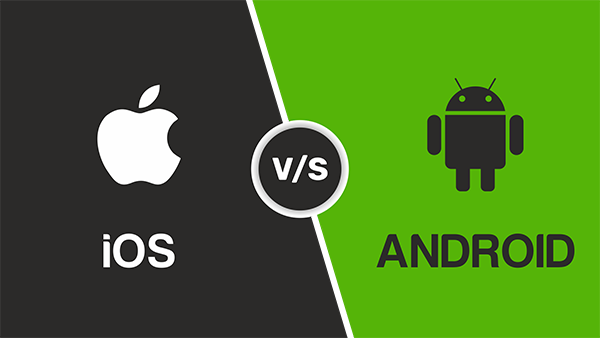
In today’s mobile-tech-driven world, the leading operating systems giants are reshaping user experience. The level of competition between Apple and Google is comparatively advantageous to both companies as it pushes them to redefine mobile usage. The significance of Apple’s iOS and Google’s Android platforms has impacted the smartphone realm. Moreover, the influence impacts consumer preferences, mobile usage, and app development experience. As Apple’s iOS and Google’s Android continue to compete, a comparative user experience can be understood through a controlled process, user interface (UI), app stores, current ecosystem, integration with hardware, security and privacy, flexibility, and system updates.
Table of Contents
Controlled Process
The development philosophy used by Apple and Google influences user experience. Apple develops and operates its iOS across an integrated experience consisting of its devices in a similar ecosystem. The experience allows users to access the same system across devices, software, and apps from the same mobile operator. On the other hand, Google’s Android is an open-source platform that allows users to access applications and smartphone experiences from different developers. In this case, users can access multiple customization options across various devices. As a result, the controlled process gives users a different perspective on customization and experience.
UI
Apple’s UI is more streamlined and minimalistic, while Android focuses on its customization. Mobile users with Apple’s iOS have access to a simple and easy-to-use interface since the developer wants limited barriers to navigating the phone. However, the UI from Android is characterized by a broad range of options to facilitate personalization. The option allows users to interface with apps from various developers since Google allows its operating system to align with other devices. Therefore, the UI is a crucial aspect many mobile users consider when opting for either of the smartphone giants. In turn, Wr1ter, a legit writing service, also has a human-friendly interface that can be helpful for ordering custom essays or research papers.
App Stores
The app stores from Apple and Google differ, setting the two companies apart in providing user experience. iOS users can access apps from App Store, which is exclusive to its devices. The store ensures that Apple’s users get access to experience-based apps since the company focuses on user needs. On the contrary, Android operates the app store called Google Play Store, and its users can have access to apps from third parties. For example, Apple users face strict guidelines when selecting apps, which is not the case with Android since it has lenient authorization, resulting in varying quality. Hence, the app store user experience differentiates Apple and Google.
Curated Ecosystem
In smartphones, the operating system ecosystem ensures a device’s sustainability. Apple’s iOS runs a stringent process curated to house high-quality apps to enable users to experience high-quality mobile device operationalization. For example, the app development process for iOS takes time, and systematic updates ensure that users can experience prolonged app life. In contrast, Android is based on the open system, allowing multiple sources to access it, which can lead to malicious apps. In this case, app optimization is crucial to ensure safety and security from external to user information, which can affect the experience.
Integration With Hardware
The integration between the operating system and the hardware is crucial to the experience of iOS and Android users. Apple’s in-house hardware and software development supports performance optimization and facilitates a unified user experience. This experience can be achieved even on modest devices since it is efficient and smooth. On the other hand, Android running on various hardware from manufacturers can hamper user experience. In some cases, the software optimization with the hardware may fail since some devices are not the same quality. Therefore, the performance of devices can affect user experience, leading to struggles when dealing with high-end operations.
Security and Privacy
Apple and Google have both committed to ensuring that user security and privacy are prioritized. Users of iOS have various security measures embedded in the system to ensure safety, such as Face ID and Touch ID, which Apple expects can allow people to enclave their information. Besides, the security review process when installing the app makes the store secure. On the contrary, Android has safety measures, like fingerprint and Google Play Protect, but these elements cannot limit the susceptibility to malware attacks. In this particular case, Google is committing more resources to improve its safety features and ensure a better user experience on its devices.
Flexibility
Modern mobile devices are designed to offer flexibility and a user-friendly experience. Apple’s approach to a simple and uniform iOS limits customization by opting for a consistent value experience. The approach is preferred by users eager to maintain their devices in a state that allows limited interference. In contrast, Android emphasizes the freedom to customize individual devices based on the user’s expectations, including system settings, default apps, and layouts. Moreover, Android’s flexibility supports external ROM developers, giving users more advanced options. As a result, flexibility plays a crucial role when deciding between iOS and Android when choosing a smartphone.
System Updates
Staying updated is a significant feature in mobile device usage. Apple’s retained control of hardware and software allows users to access timely system updates across all supported devices, limiting malfunctions and malware. For instance, iOS updates and supported models are communicated when released, which helps to address security issues and bugs. However, Android is constrained by its involvement with multiple carriers whose ability to implement device updates may happen at different intervals. In turn, prolonged updates can lead to poor device performance, affecting user experience.
Conclusion
The battle for the best mobile operating system between Apple’s iOS and Google’s Android will continue to shape the smartphone landscape. In each platform, there are specific features that appeal to user needs. The distinct uniformity of iOS gives it a curated interface that users with an affinity for less customization can enjoy and maintain. While Android is characterized by its openness and flexibility, it allows users to expand the horizon of usability. Nevertheless, the competition between Apple and Google will continue to provide users with quality personal preferences due to innovation and global appeal. Ultimately, the choice between iOS and Android comes down to personal preferences and device performance.

